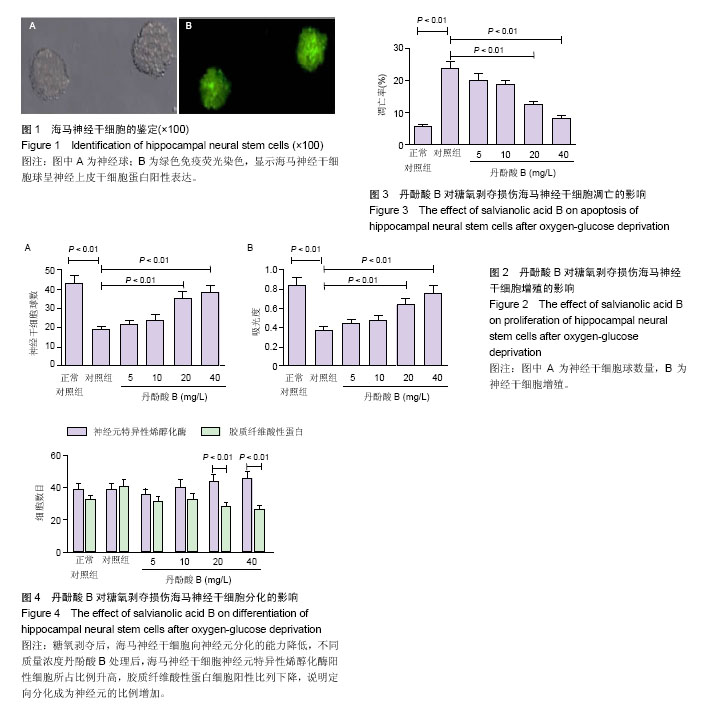| [1] Zhou GJ,Wang W,Xie XM,et al.Post-harvest induced production of salvianolic acids and significant promotion of antioxidant properties in roots of Salvia miltiorrhiza(Danshen). Molecules.2014;19(6):7207-7222.[2] Chen YS,Lee SM,Lin YJ,et al.Effects of Danshensu and Salvianolic Acid B from Salvia miltiorrhiza Bunge (Lamiaceae) on cell proliferation and collagen and melanin production. Molecules. 2014;19(2): 2029-2041.[3] Cai J,Chen S,Zhang W,et al.Salvianolic acid A reverses paclitaxel resistance in human breast cancer MCF-7 cells via targeting the expression of transgelin 2 and attenuating PI3 K/Akt pathway. Phytomedicine.2014;21(12):1725-1732.[4] Wang R,Yu XY,Guo ZY,et al.Inhibitory effects of salvianolic acid B on CCl 4-induced hepatic fibrosis through regulating NF-κB/IκBα signaling. J Ethnopharmacol. 2012;144(3): 592-598.[5] Ba J,Peng H,Chen Y,et al.Effects and mechanism analysis of vascular endothelial growth factor and salvianolic acid B on 125I-low density lipoprotein permeability of the rabbit aortary endothelial cells.Cell Biochem Biophys.2014;70(3): 1533-1538.[6] Wang X,Lin J,Li G,et al.Development of salvianolic acid B–tanshinone IIA–glycyrrhetinic acid compound liposomes: Pharmacokinetic study in vivo of mice. Nanomedicine.2016; 12(2):497.[7] Shu T,Pang M,Rong L,et al.Protective Effects and Mechanisms of Salvianolic Acid B Against H2O2-Induced Injury in Induced Pluripotent Stem Cell-Derived Neural Stem Cells.NeurochemRes.2015;40(6):1133-1143.[8] Chen YH,Du GH,Zhang JT.Salvianolic acid B protects brain against injuries caused by schemia-reperfusion in rats.Acta Pharmacol Sini.1999;21(5):463-466.[9] 高原,王哲,于丹,等.眼针与体针对急性脑缺血再灌注损伤大鼠脑皮质脑源性神经营养因子表达的影响[J].中国老年学杂志,2015, 31(15):4368-4370.[10] Strojnik T,Røsland GV,Sakariassen PO,et al.Neural stem cell markers, nestin and musashi proteins, in the progression of human glioma: correlation of nestin with prognosis of patient survival.Surg Neurol.2007;68(2):133-143.[11] Corti S,Locatelli F,Papadimitriou D,et al.Identification of a primitive brain–derived neural stem cell population based on aldehyde dehydrogenase activity.Stem Cells.2006;24(4): 975-985.[12] Böhmer AE,Oses JP,Schmidt AP,et al.Neuron-specific enolase, S100B, and glial fibrillary acidic protein levels as outcome predictors in patients with severe traumatic brain injury. Neurosurgery.2011;68(6):1624-1631.[13] Codega P,Silva-Vargas V,Paul A,et al.Prospective identification and purification of quiescent adult neural stem cells from their in vivo niche.Neuron.2014;82(3):545-559.[14] Faigle R,Song H.Signaling mechanisms regulating adult neural stem cells and neurogenesis. Biochim Biophys Acta. 2013;1830(2):2435-2448.[15] Mine Y,Tatarishvili J,Oki K,et al.Grafted human neural stem cells enhance several steps of endogenous neurogenesis and improve behavioral recovery after middle cerebral artery occlusion in rats.Neurobiol Dis.2013;52:191-203.[16] Santilli G,Lamorte G,Carlessi L,et al.Mild Hypoxia Enhances Proliferation and Multipotency of Human Neural Stem Cells. PloS One.2010;5(1):e8575-e8575.[17] Panchision DM.The role of oxygen in regulating neural stem cells in development and disease.J Cell Physiol.2009; 220(3): 562-568.[18] Yan J,Liu J,Greer JM,et al.Increased expression of the hypoxia-related genes in peripheral blood leukocytes of human subjects with acute ischemic stroke.Clin Exp Neuroimmunol.2014;5(2):216-226.[19] Jensen MB,Yan H,Krishnaney-Davison R,et al.Survival and differentiation of transplanted neural stem cells derived from human induced pluripotent stem cells in a rat stroke model.J Stroke Cerebrovasc Dis.2013;22(4):304-308.[20] Ager RR,Davis JL,Agazaryan A,et al.Human neural stem cells improve cognition and promote synaptic growth in two complementary transgenic models of Alzheimer's disease and neuronal loss. Hippocampus.2015;25(7):813-826.[21] Hao Y,Xie T,Korotcov A,et al.Salvianolic acid B inhibits growth of head and neck squamous cell carcinoma in vitro and in vivovia cyclooxygenase-2 and apoptotic pathways.Int J Cancer. 2009;124(9): 2200-2209.[22] Zhang N,Kang T,Xia Y,et al.Effects of salvianolic acid B on survival, self-renewal and neuronal differentiation of bone marrow derived neural stem cells.Eur JPharmacol.2012; 697(1):32-39.[23] 郭国庆,李斌,王圆圆,等.丹酚酸B促进胎鼠大脑皮质神经干细胞增殖、突起生长和分化[J].中国科学C辑:生命科学,2009,39(8): 793-802.[24] Li X,Li M,Liu J,et al.Preparation of Hollow Biopolymer Nanospheres Employing Starch Nanoparticle Templates for Enhancement of Phenolic Acid Antioxidant Activities.J Agric Food Chem.2017. doi: 10.1021/acs.jafc.7b01172.[Epub ahead of print][25] Huang Y,Sun HY,Qin XL,et al.A UPLC-MS/MS Method for Simultaneous Determination of Free and Total Forms of a Phenolic Acid and Two Flavonoids in Rat Plasma and Its Application to Comparative Pharmacokinetic Studies of Polygonum capitatum Extract in Rats. Molecules. 2017; 22(3).pii: E353. doi: 10.3390/molecules22030353.[26] Su X,Zhang J,Wang H,et al.Phenolic Acid Profiling, Antioxidant, and Anti-Inflammatory Activities, and miRNA Regulation in the Polyphenols of 16 Blueberry Samples from China.Molecules.2017;22(2).pii: E312. doi: 10.3390/molecules22020312.[27] Song Z,Guo L,Liu T,et al.Comparative RNA-Sequence Transcriptome Analysis of Phenolic Acid Metabolism in <i>Salvia miltiorrhiza</i>, a Traditional Chinese Medicine Model Plant.Int J Genomics.2017;2017:9364594.[28] Zhou HC,Yang L,Guo RZ,et al.Phenolic acid derivatives with neuroprotective effect from the aqueous extract of Clerodendranthus spicatus.J Asian Nat Prod Res. 2017 Jan 31:1-7.[29] Du WY,Xiao Y,Yao JJ,et al.Involvement of NADPH oxidase in high-dose phenolic acid-induced pro-oxidant activity on rat mesenteric venules.Exp Ther Med.2017;13(1):17-22.[30] G?secka M,Rzymski P,Mleczek M,et al.The relationship between metal composition, phenolic acid and flavonoid content in Imleria badia from non-polluted and polluted areas. J Environ Sci Health B.2017;52(3):171-177.[31] Yin C,Xiang L,Wang G,et al.How to Plant Apple Trees to Reduce Replant Disease in Apple Orchard: A Study on the Phenolic Acid of the Replanted Apple Orchard.PLoS One. 2016;11(12):e0167347.[32] Gao S,Yu HN,Wu YF,et al.Cloning and functional characterization of a phenolic acid decarboxylase from the liverwort Conocephalum japonicum.Biochem Biophys Res Commun.2016;481(3-4):239-244.[33] Flores G,Blanch GP,Del Castillo ML.Effect of postharvest methyl jasmonate treatment on fatty acid composition and phenolic acid content in olive fruits during storage.J Sci Food Agric. 2016 Oct 18. doi: 10.1002/jsfa.8104. [Epub ahead of print][34] Buci?-Koji? A,Šelo G,Zeli? B,et al.Recovery of Phenolic Acid and Enzyme Production from Corn Silage Biologically Treated by Trametes versicolor.Appl Biochem Biotechnol. 2017; 181(3): 948-960.[35] Wang Z,Ge Q,Chen C,et al.Function Analysis of Caffeoyl-CoA O-Methyltransferase for Biosynthesis of Lignin and Phenolic Acid in Salvia miltiorrhiza.Appl Biochem Biotechnol.2017; 181(2):562-572.[36] Carbone K, Fiordiponti L.Colour Evaluation, Bioactive Compound Content, Phenolic Acid Profiles and in Vitro Biological Activity of Passerina del Frusinate White Wines: Influence of Pre-Fermentative Skin Contact Times.Molecules. 2016;21(7).pii: E960.doi: 10.3390/molecules21070960. |
.jpg)

.jpg)